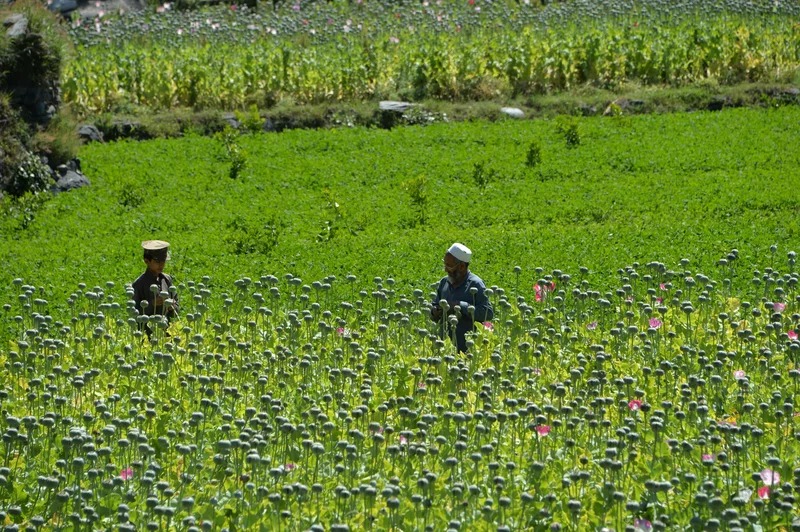Authorities have disclosed extensive poppy cultivation in the border regions of Dera Ismail Khan (DI Khan), district in Khyber Pakhtunkhwa and nearby areas of Balochistan, raising solemn regret over its connection to terrorism and organised crime in Pakistan.
According to credible sources, poppy fields spanning hundreds of kanals have been identified in areas such as Pastwari and Kochmina. The high-quality opium extracted from these fields is estimated to be worth millions of dollars in the illicit drug market.
The reports indicate that at least 40 militants, including the most wanted terrorists Tariq Kalachi and Habib ur Rahman, have established hideouts in the region, with additional militants reportedly arriving. Local sources revealed that Afghan labourers are being employed for poppy cultivation under the financial backing of the terrorist faction known as the Faizullah Ikhwani Group.
Of grave concern is the reported online sale of opium harvested from these fields in different regions of KP and Baluchistan, with proceeds allegedly funding terrorist activities inside Pakistan. This development poses a direct threat to national security and underscores the deepening nexus between narcotics and militancy.
The United Nations Office on Drugs and Crime (UNODC) had previously shared a pointed renounce in Afghanistan’s opium production until 2023. However, recent trends propose a resurgence in drug cultivation, leading traffickers and militant groups to hunt alternative sources with Pakistan’s border regions emerging as a new hub for narcotics origination.
Given the severity of the situation, immediate and decisive government intervention is quite important at this time. A comprehensive counter narcotics strategy must be implemented to dismantle these illegal operations and sever the financial lifelines of different terrorist networks available in different region of Pakistan and Afghanistan. The Anti Narcotics Force (ANF), in coordination with civil administration and law enforcement agencies, must launch targeted based operations to eradicate poppy fields, dismantle militant hideouts, and disrupt trafficking networks.
A failure to act swiftly could allow these criminal militants networks to consolidate their foothold, exacerbating security threats within Pakistan and the broader region. The government must prioritise this issue to safeguard national stability and regional security.





